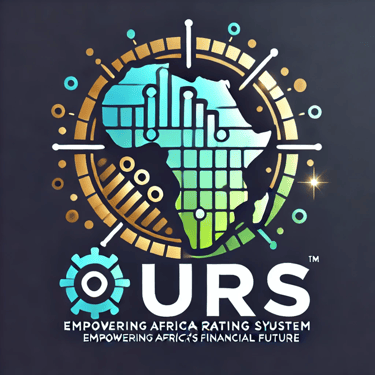
Individuals Credit Score
By categorising personalised data into these classifications, Unique Ratings can develop tailored solutions that accurately reflect the creditworthiness of individuals and businesses in Africa, taking into account the rich tapestry of history, lifestyle, and culture that shapes the region's financial landscape.
Individual Credit Score
Personal Credit Scores in Africa exhibit significant differences compared to those in developed regions, particularly the Western World. Employing methodologies derived from developed nations in this context is akin to using a sledgehammer to swat a mosquito. At Unique Ratings, we possess an intimate understanding of the intricacies of credit history and performance within the African landscape. We understand the unique context of credit in Africa and how data is collected and utilised. We are here to provide tailored solutions that accurately reflect the creditworthiness of individuals and businesses in Africa. We appreciate the nuanced adoption of methodologies in the collection and application of data, reflecting our deep-rooted connection and insight into the unique dynamics of credit in Africa. With our expertise and localised approach, we ensure that credit scores are fair, reliable, and beneficial for the African community.


History and Culture
Credit assessments in Africa are influenced by diverse cultural contexts and varying methods of wealth classification across different societies on the continent. Recognising these historical and cultural nuances is crucial for accurately assessing creditworthiness. Unique Ratings acknowledges the importance of understanding these differences and tailors its methodologies to accommodate the diverse dynamics of credit in Africa. By doing so, it aims to provide more inclusive and relevant credit-scoring solutions for individuals and businesses across the continent.
We deliberately employ tailoring methodologies to accommodate these differences ensuring more inclusive credit-scoring solutions. The goal is to provide accurate evaluations for African individuals and businesses.




Economic background: Consideration of income levels, employment status, and access to financial resources.
Educational attainment: Understanding the level of education achieved and its impact on financial literacy and decision-making.
Household structure: Recognition of family dynamics and responsibilities that may affect financial stability and obligations.


Traditional practices: Incorporation of cultural norms and traditions that influence financial behaviours and obligations.
Community values: communal support systems and collective financial responsibilities within African societies.
Religious beliefs: Understanding the role of religion in shaping financial attitudes and practices, such as lending and borrowing customs.


Colonial legacy: Awareness of the historical impact of colonialism on economic structures and access to resources, shaping present-day disparities.
Post-independence developments: Consideration of the socio-economic changes and challenges faced by African nations after gaining independence.
Diverse cultural norms: We acknowledge diverse cultural contexts and wealth classification methods in Africa. These variations impact credit assessments, necessitating a nuanced approach.


Geographic considerations: Recognition of regional disparities in economic opportunities, infrastructure, and access to financial services.
Urban-rural divide: Understanding differences in lifestyle, employment opportunities, and financial behaviours between urban and rural areas.
Linguistic diversity: Accommodation of linguistic preferences and challenges in data collection and communication, ensuring inclusivity and accessibility.
